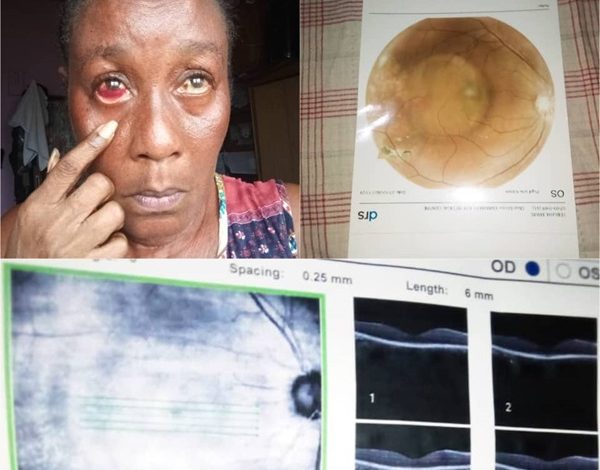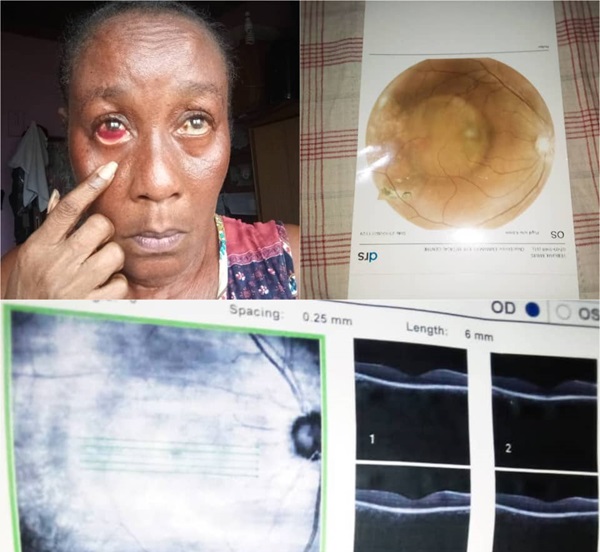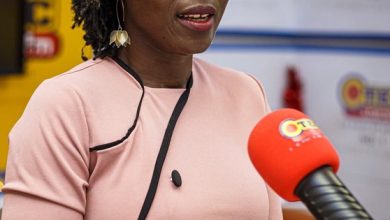
Across Ghana, thousands are fighting a hidden battle against diabetes.
For actress Mavis Yeboah, known to many as Maame Djanwaa, the warning came violently: six unexplained collapses, the last one leaving her sprawled in a roadside gutter at Alajo, a suburb in Accra.
“At first, I thought it was juju from my acting colleagues,” she recalled.
“People around me also believed someone was working against me spiritually.”
The truth came only after six months, when she sought medical care at the Kaneshie Polyclinic. Tests revealed diabetes.

“I wept when they told me,” she said.
“This disease demands so much. If you are not financially stable, you won’t survive.”
Details:
She was 40 at the time. Her father and all four of his siblings had suffered from the illness.
She believes diet played a role too, remembering how her grandmother sold “aboloo” made with sugar, which the family consumed greatly.
What stunned her most was that she had never been fond of soft drinks, canned snacks, or processed foods. Her staples were traditional dishes like banku and fufu.
Still, the disease struck, proving that genetics and lifestyle can collide in devastating ways.
Current state:
Now 56, Mavis says her life has been upended by the illness. She has lost vision in one eye and relies on costly injections to preserve the other.
Each one costs 6,000 cedis, far beyond what she can afford. For almost six months, she has not been able to go for the treatment.
Doctors have warned that if she misses the injections, she may lose her remaining eye. “I don’t have any money at all,” she admitted quietly.
In desperation, she once tried selling beads by the roadside, but some of her fans recognized her and told her she did not deserve to be on the streets like them.
Uncomfortable Situation:
Embarrassed, she packed up and went home.
Today, she is living from hand to mouth, unable to work and struggling even to meet her basic needs.
Her case highlights a national emergency. A recent report by the Ghana Broadcasting Corporation revealed that Korle Bu Teaching Hospital recorded more than 5,000 diabetes referrals in the first half of 2025, along with over 2,000 kidney cases linked to complications.
The hospital’s Chief Executive, Dr. Yakubu Seidu Adam, warned that more patients under 40 are being diagnosed with non-communicable diseases, including diabetes, hypertension, and cardiovascular conditions.
Disease Situation:
A disease once thought to belong to the elderly is tightening its grip on the young.
Despite her pain, Mavis has turned her ordeal into a warning. She urges people to avoid late-night eating, cut down on sugary drinks and canned foods, and adopt simple habits such as walking after meals.
Parents, she insists, must educate their children early, while the youth should use their strength wisely by making healthier choices.
Her motivation, she says, comes from God and her grandchildren.
“Even in my weakness, I live for them,” she said. “And I tell others: don’t wait until you collapse. Take care of yourself while you can.”
Need For Action:
Mavis Yeboah’s collapse and diagnosis are more than a personal misfortune.
They serve as a sign of what lies ahead for Ghana if urgent action is not taken. With hospital cases soaring and treatment costs out of reach for many, diabetes has become not just a medical issue but a social and economic burden.
Her story, paired with the evidence from Korle Bu, carries a blunt truth. The sweetness that fills our cups today could turn bitter tomorrow if Ghana fails to act.
Article by Michael Ofosu-Afriyie& Nana Ama Asantewaa Kwarko.



